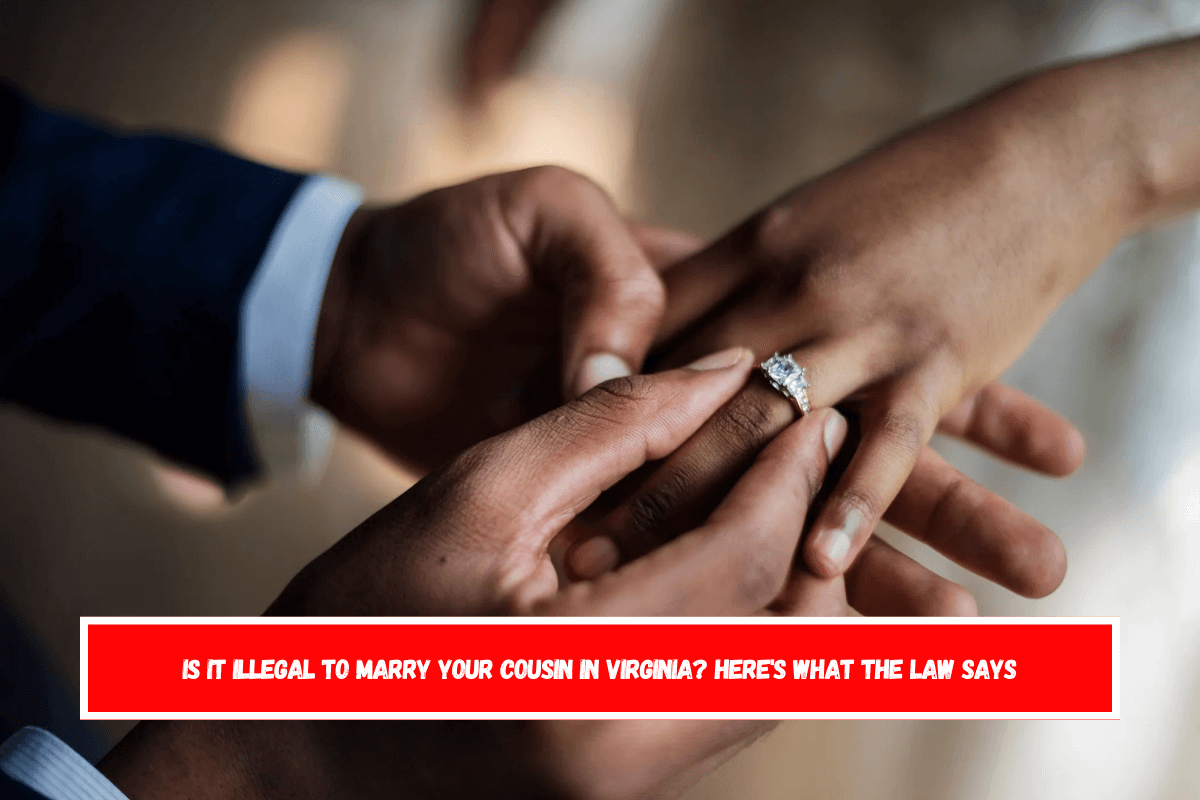In Virginia, it is legal to marry your cousin. The state’s marriage laws do not prohibit marriages between first cousins, making Virginia one of the 17 states in the U.S. where such unions are permitted without any specific conditions or restrictions.
Overview of Virginia’s Marriage Laws
Virginia’s marriage regulations are outlined in Title 20 of the Code of Virginia, which specifies various prohibitions on marriages. According to § 20-38.1, the law prohibits marriages between:
- Ancestors and descendants (e.g., parent-child)
- Siblings (both full and half-blood)
- Uncles/aunts and nieces/nephews
However, there is no mention of restrictions on cousin marriages, indicating that first cousins can legally marry in the state.
Comparison with Other States
The legal landscape for cousin marriage varies significantly across the United States. While Virginia allows first cousin marriages, many states impose restrictions or outright bans. For instance:
- States that allow first cousin marriage: Virginia, California, New York, and New Jersey.
- States with restrictions: Maine permits cousin marriage only after genetic counseling; Arizona allows it only if both parties are above a certain age or one is infertile.
- States that ban cousin marriage: Approximately 32 states have laws against it, reflecting a substantial divide in public policy regarding this issue.
Cultural and Legal Context
The acceptance of cousin marriages can be influenced by cultural norms and historical practices. In many cultures around the world, marrying a cousin is common and socially acceptable. However, in the U.S., it often carries stigma due to concerns about genetic risks associated with consanguinity.
Critics argue that children born from cousin unions may face higher health risks, although studies suggest that the actual risk is often overstated.Despite these concerns, proponents argue for personal freedom in marital choices, emphasizing that individuals should have the right to marry whom they choose without government interference as long as there is mutual consent among adults.
Conclusion
In summary, marrying a cousin is legal in Virginia, reflecting a more permissive stance compared to many other states. The lack of prohibitions suggests a recognition of personal choice in marital relationships within the state.
As societal views continue to evolve regarding family structures and relationships, laws may also adapt to reflect changing attitudes towards cousin marriages across the United States.
Sources:
- https://en.wikipedia.org/wiki/Cousin_marriage_law_in_the_United_States
- https://vsb.org/common/Uploaded%20files/docs/pub-fa-marriage.pdf
- https://code.wvlegislature.gov/48-2-302/
- https://cardozolawreview.com/the-unconstitutionality-of-state-bans-on-marriage-between-first-cousins/











Leave a Reply